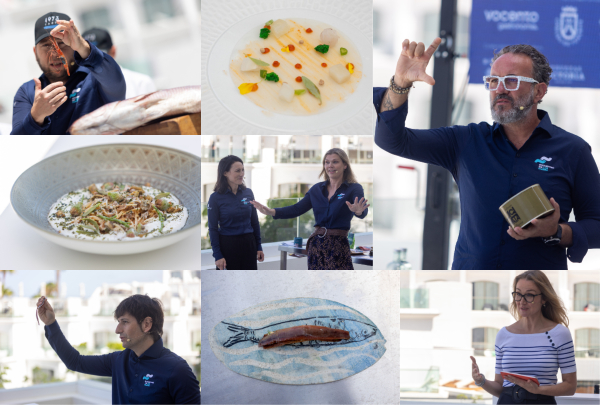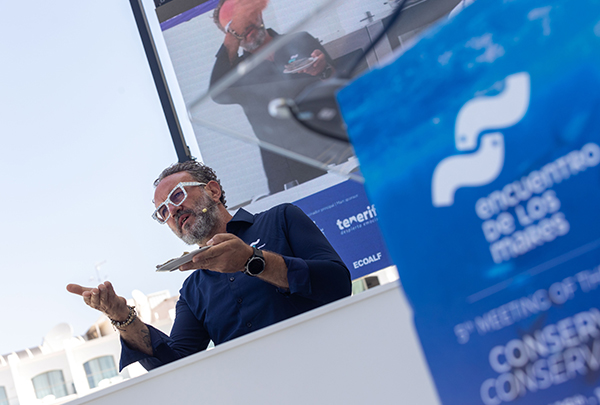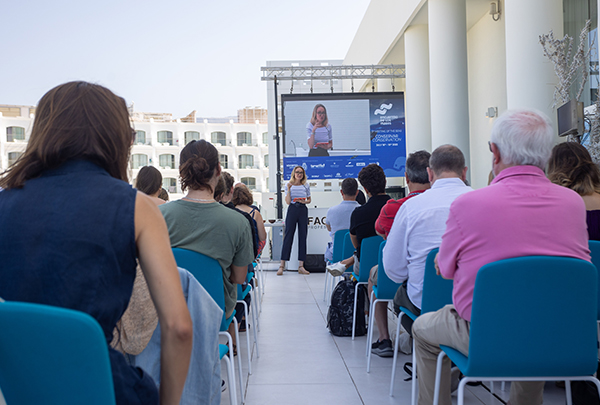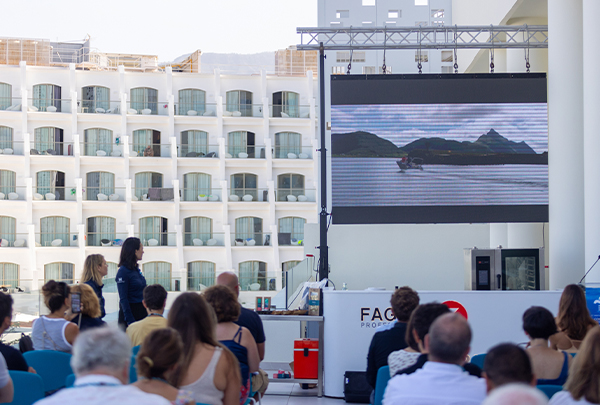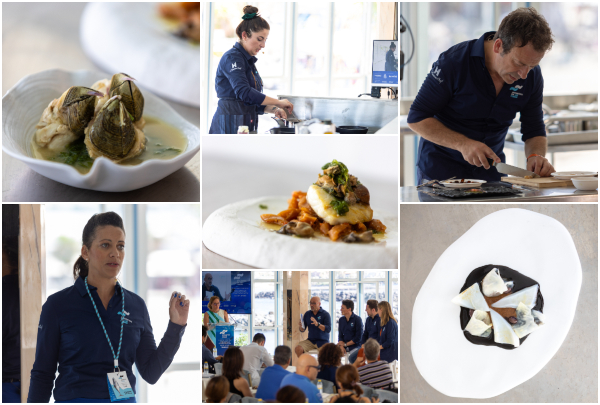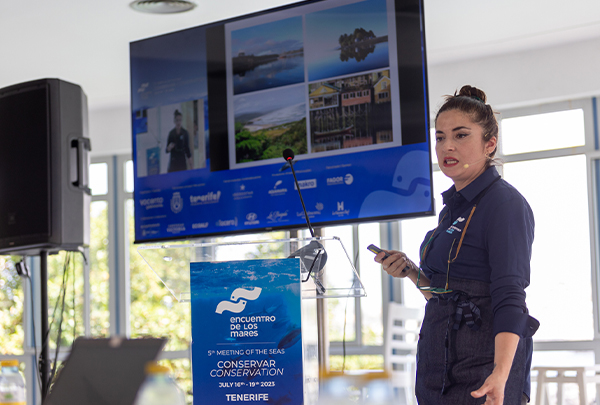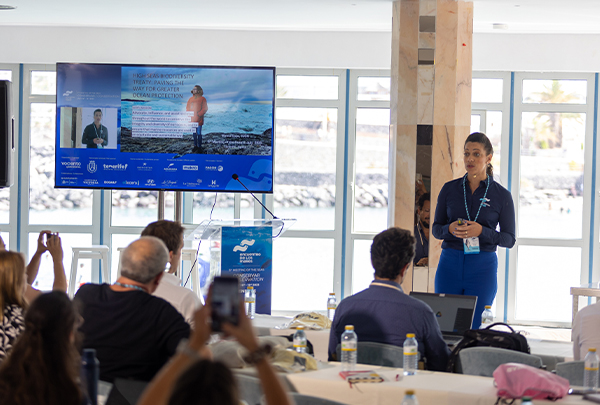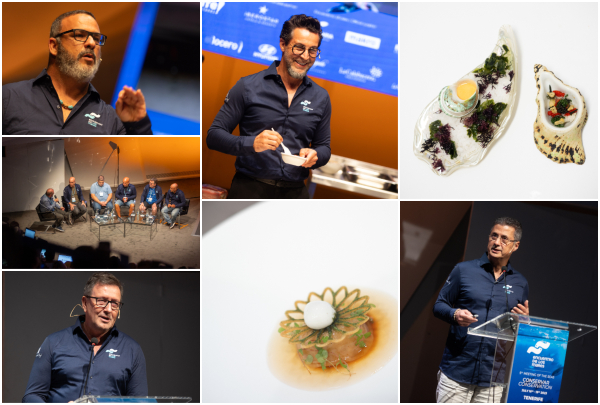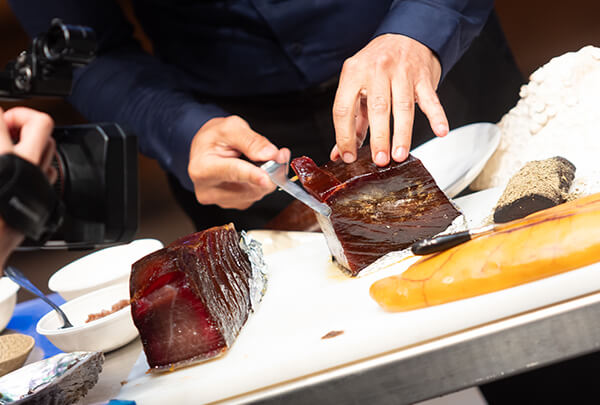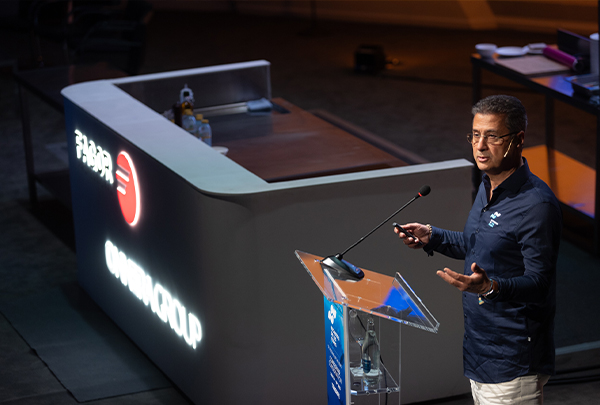News
Environmentalism and fishing should be reconciled, to guarantee the feasibility of both in the sea
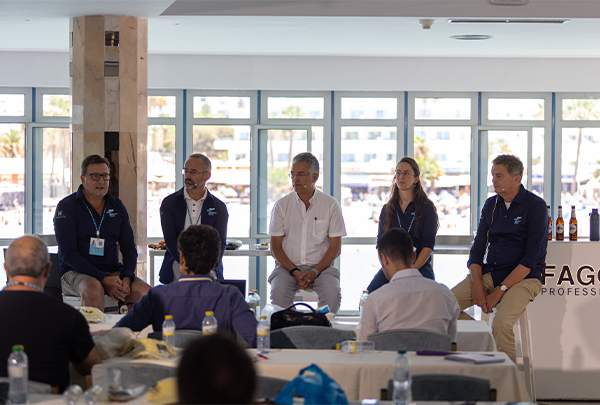
The last debate of the day focused on the conflict between sea wind power and fishing, and was moderated by biologist Carlos Duarte, the event's scientific director, and one of the world's leading Spanish oceanographers.
He is now engrossed in Project 2050, a global survey for the recovery of the oceans, setting out the necessary roadmap for the planet's marine life to recoup its abundance by the year 2050. Carlos is a staunch defender of regeneration of the marine environment, "and so it is essential to forget about 'you against me', and start talking about 'us'. It is essential to take up a scientific perspective and align postures among all the industries involved to minimise impacts and create a healthy ocean for one and all", he said.
And to discuss the pros and cons of one of these impacts, the worldwide proliferation of sea wind power plants, Meeting of the Seas brought together four specialists who have first-hand knowledge of various experiences in this field. One of them, marine environmentalist Eline van Onselen, works for the North Sea Foundation on pilot wind power projects in the North Sea, much deteriorated by human activity, conducting analyses of all the risks and opportunities. “Although we still don't know the real extent of their effects, and it will be decades before we do, it seems obvious that the installation and functioning of wind power plants lead to the loss of habitats, collisions of birds with wind turbines, sea noise, changes to currents and stratification ... in a word, changes to the ecosystem. But we also believe there are alternatives to offset these effects, on the basis of a holistic international and intersectoral perspective, based on respect for nature and global togetherness to minimise the impact", she explained in her presentation.
Another major expert in the North Sea case is Pim Visser, director of Blue Port Centre Den Helder and adviser to the regional fishing association in the northwest Netherlands, since during his previous job as head of the national fishing organisation, he was involved in negotiations for the agreement in which representatives of the wind power, oil and gas sectors, and also nature conservation, shipping, fishing and governments found a common approach towards sustainable usage. “Environmentalism is becoming a limiting factor, and so we need more knowledge to let this industry go forward. Environmentalism and fishing should be reconciled, to guarantee the feasibility of both in the sea", he declared.
The conflict in Spain, and the case of the Canary Islands
Involved in a number of projects in the Canary Islands, researcher Pablo Martín-Sosa coordinates the Group of Marine Protected Areas at the Canary Islands' Oceanographic Centre (CSIC-IEO), and has primarily focused on projects relating to the protection of biodiversity and low-impact fishing practices offshore. During his presentation, he explained the effects of marine wind power plants on fishing on the geographic level, in a region, the Canary Islands, "with some very fragile fishing resources, where the protected areas, when they are properly regulated, will create even more adverse effects. This, along with the installation of wind power plants, means that the other fishing grounds will have an even greater effect on a sector already experiencing serious difficulties", he warned. In any case, Pablo believes that "it's not a matter of banning any of the activities, but rather reconciliation in the form of measures to benefit both camps".
However, it does seem that there is a long way to go before this happens, as pointed out by the director of La Laguna University's Social Research and Tourism Institute, José Pascual. A professor of Social Anthropology, and extremely familiar with the organisation of fishing guilds, he listed the key arguments and possible solutions concerning a conflict which is now being investigated by the Supreme Court. “You have to understand the reaction of the fishermen at what they see as the occupation of their spaces by wind power plants. But, in reality, this collision of interests has come about due to a lack of a process of dialogue to reach a consensus between both parties. It is essential to reach a compromise", he said. With regard to the possible impacts, Pascual maintained that "there are still many unknown factors, and as a scientist I feel we ought to carry out a greater study of the potential effects of wind power plants on the environment, and on the other activities carried out in it".

